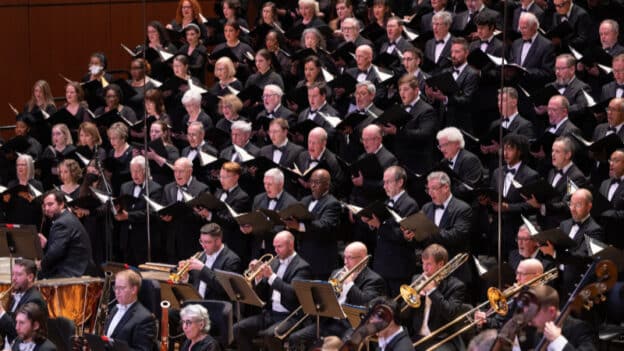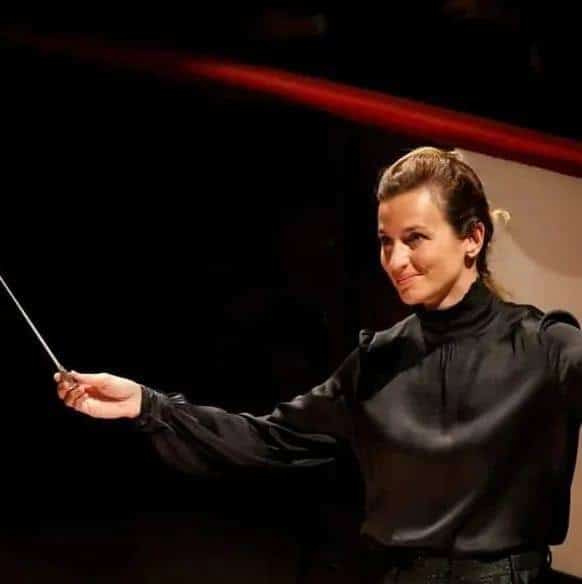Another door shuts: Instagram bans classical music
mainTiffany Poon, a Juilliard pianist now studying at Yale, tells us that Instagram has invoked copyright reasons for stopping musicians from playing classical music on live streams.
Tiff is not taking this quietly.
She has posted a video on Youtube and a petition, right here.
Four thousand have signed already. You should, too.






What did we ever do without Instagram (whatever it is)?
Instagram is owned by Farcebook. This is a massive centralization of “social networking”. If the product is free, be certain that YOU are the product and your data are being sold to anyone willing to pay, including the government.
Anyone using either deserves all they get.
And your ignorance is why classical music is dying…
Add it to the list….
https://i.imgur.com/kS6IaAE.jpg
VERY GOOD! Thanks.
Yeah, that’s why…
Instagram seems to ignore that copyright has expired for a large segment of the so called ‘classical music’ repertoire.
To differentiate would require some cultural awareness and education, but that is quite obviously one step too far for the Einsteins in charge of that company.
The copyrights in question are for performance, not composition. Very few performance copyrights have fallen into public domain. If Instagram, Facebook, YouTube and others want to stream music, they need to pay the owners of the recording rights.
So when do performance copyrights expire? Surely my own performance couldn’t be a copyright problem, since it didn’t exist until I made it, and I would have the rights to it, no?
Or are we talking instead about the rights to a particular editor’s “performing edition”?
Really? It’s the rights to the recording. Those are protected by copyright. People aren’t playing live on Instagram.
Hi Scott, I can’t speak for everyone on Instagram, but yes, musicians do play live on Instagram for followers, hence this petition.
She does mention that *she* wants to play, live and unedited…not that she is playing someone else’s recording.
Yikes. Bill, I was responding to the “she’s playing live” bit, not the youTube bit. That said, I suspect that most of the music on youTube isn’t placed by the copyright holders. That includes assorted videos of live performances, music added to non-performance videos, cute cats and the like, as well has complete albums with only a static shot of the cover as a visual. There are many many hours of my music on youTube, of which only a small fraction was posted with the label’s (or in the case of fan-shot videos, my) permission.
I’m referring to posting commercial recordings on youtube. Recordings where one could go buy (or license) a copy, but gets to skip doing so because it is freely available on youtube. That is also largely the set of recordings where one can relatively easily identify who should be compensated by technological means.
Again, this woman is talking about performing music which has been in the public domain for a long time – Beethoven, Mozart, Chopin. There are no performing rights involved there. My take is that Instagram is simply taking the easy approach and shutting down the livestreams if they have detectable musical content so they don’t have to worry about whether or not someone might be due some compensation. This is clearly easier than attempting to detect in real-time that there is no copyrighted content (a hard problem in general – detecting that something is not OK is relatively straightforward, but just because you don’t identify it as being a known copyrighted work doesn’t mean it isn’t one).
“Surely my own performance couldn’t be a copyright problem, since it didn’t exist until I made it, and I would have the rights to it, no?” No. You would only have the performer’s right in the sound recording. There would be a second, equivalent producer’s right in the sound recording that you may or may not own. Just because you were a performer on the sound recording does not mean that you made the arrangements to have the recording made. This is what the producer does and what the producer’s right is based on. (See Rome Convention for the Protection of Performers, Producers of Phonograms and Broadcasting Organisations). Most performers sign an agreement giving away their rights in a sound recording to a producer or record company. Placido Domingo does not own the public performance rights in his recordings, his record company does. The be streamed on the internet legally, all rights must be cleared.
I am just wondering then:
wouldn’t that also apply for photos, which are taken by users and published on
Instagram ? The copyright regarding photos is very strict as far as I know.
And I have doubts that You Tube really pays all users for their their privately recorded uploads.
PS Instagram seems to have found a solution for photo rights issues.
https://www.copyrightlaws.com/instagram-content-copyright/
Why not for classical music ?
Exactly. Thank you. I hope this petition gets their attention somehow.
No, in most cases youTube does not pay for this particular type of theft. They leave it to the copyright holders to identify each track for removal. This is a point of contention between copyright holders and youTube.
I don’t know if “most cases” is necessarily accurate. I see a large number of commercial recordings on youtube, provided by the record label. Commercial recordings not provided by the record label are often of older material where in at least some countries the performance copyrights may have expired. It is possible that my perception here is colored by the repertoire that I find of interest; for other tastes, the distribution may be quite different.
Thanks Bill. I missed that. But then she, or someone, would have to ensure that whatever she played was in the public domain.
OK. So. I can see this if the performer is using a specific, unique edition of a piece of music and hasn’t secured permission to distribute it on a recording. But if they’re playing from an old edition of the score whose copyright has expired, what’s the problem.
As for streaming the performance itself over IG, if it’s my performance and I recorded it (and hence own the copyright), don’t I have a right to stream it on my Instagram page?
Or is there a legal nuance I’m missing here?
I suspect the legal nuance is that Instagram simply detects that music is being played, and rather than risk running afoul of copyright claims and not wanting to go to the trouble of actually determining in real time if it might be a commercial recording, just cuts the mike.
You might have a right to allow your performance to be streamed, if Instagram wants to carry the content for you, but you don’t have the right to force them to do so.
Only idiots use Instagram. You are ridiculous to have any expectations of it. Grow up and use YouTube or facebook or your own website, or pay for a license and royalties!
Quite, Instagram is for not very intelligent adolescents.
Someone using this website criticizing the taste in websites of others :rolleyes:
Some idiots fail to comprehend the point being made here, too. No license or royalties are required – she wants to record herself playing and distribute live over Instagram. She owns all the rights if she plays music no longer under copyright.
Some of us idiots got the point. In my case, I appear exceptionally idiotic because I kept attaching replies to the wrong comments.
So, anyway, here’s the point I eventually got: Some people play live on Instagram. That’s swell. But if they play compositions that aren’t in the public domain, the composers’ copyrights are being violated. So Instagram needs to ensure that only public-domain stuff is performed. How might Instagram do that? They decided they couldn’t.
Exactly, they decided they couldn’t be bothered with the hassle and expense of checking every piece of music on their platform. So they enacted a simple rule that no music is allowed.
Instagram would not be banning classical music if it is lead by a woman CEO instead.
Instagram hasn’t know way of knowing that and they’re legaly exposed here.
If people don’t like this policy then their ire should really be directed towards Congress because they write copyright law.
And people should be careful about asking Congress to loosen the law. Not so long ago it gave artists very little protection over their creations.
Ugh. Auto correct.